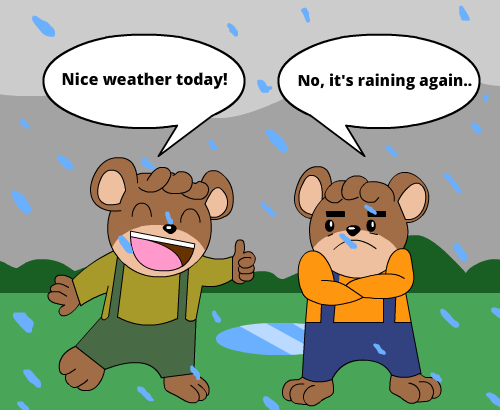Optimistic or Pessimistic (Speaking: 1140L; CEFR B2)
Click on "record" to start practice. Read as clearly as you can.
Escucha atentamente la lectura. No es necesario leer en voz alta.
Escuchar atentamente la lectura. Después repite cada oración con el propósito de verificar la pronunciación.
Good job! Thanks for reading.
Error
Ocurrió un error al publicar su archivo al servidor. Su envío NO HA SIDO recibido. Por favor refresque la página e inténtelo nuevamente.
There is a saying in English that is often used to show the difference between an optimist and a pessimist: “Is the glass half empty or half full?” Optimists will see the glass as half full, which means they believe they have enough to drink. Pessimists will see the glass as half empty, which means they focus on the glass becoming empty. But there is more to these opposing mindsets than the saying implies. Optimists tend to expect positive outcomes when faced with an unexpected event, while pessimists tend to expect negative outcomes when faced with the same event. Optimism and pessimism are known in psychology as explanatory styles.
Expectations play a large role in each of our lives. They affect how people respond to events in their lives. Research has shown that optimists tend to be happier and healthier people, since they naturally believe things will turn out well for them. But that doesn’t mean having a pessimistic outlook is necessarily bad.
Pessimists tend to believe things will not work out in their favor, but it is more than that. People with this explanatory style tend to have a negative view of life in general. They do not believe things will go their way. This isn’t necessarily unhealthy. Research has shown that people with a pessimistic outlook are more realistic than their optimistic friends. This means they are less likely to be upset when things don’t go their way.
Experts believe that the healthiest outlook is a blend of the two explanatory styles called realistic optimism. Realistic optimists tend not to delude or to underestimate themselves. Their more realistic approach to life tends to result in having more self-control over their personal relationships and a creative approach to problem solving. There is one downfall to being a realistic optimist: they are more likely to have anxiety than optimists.
Procesando
